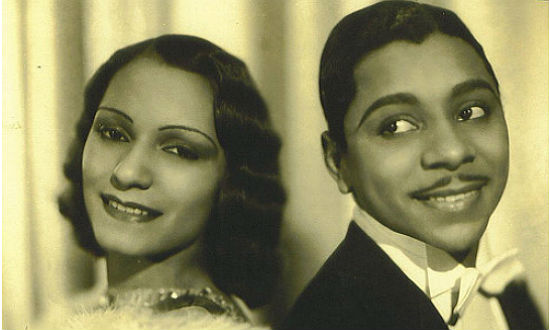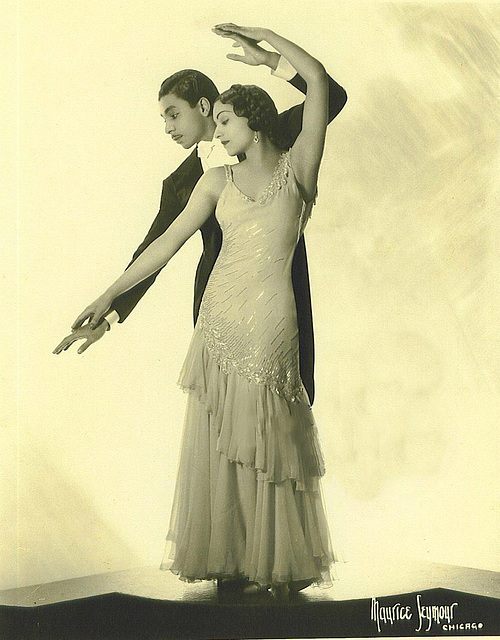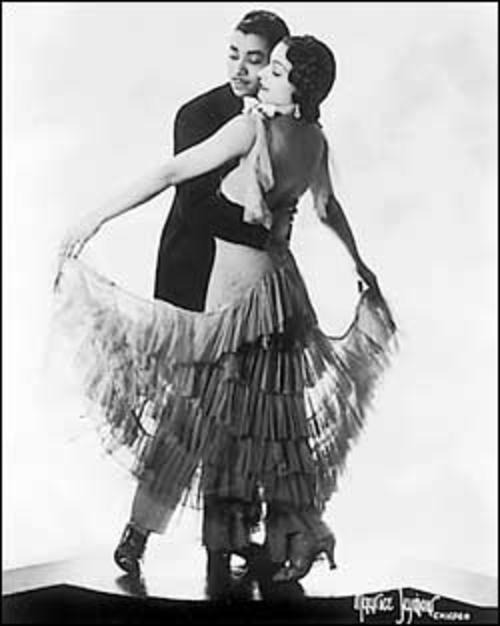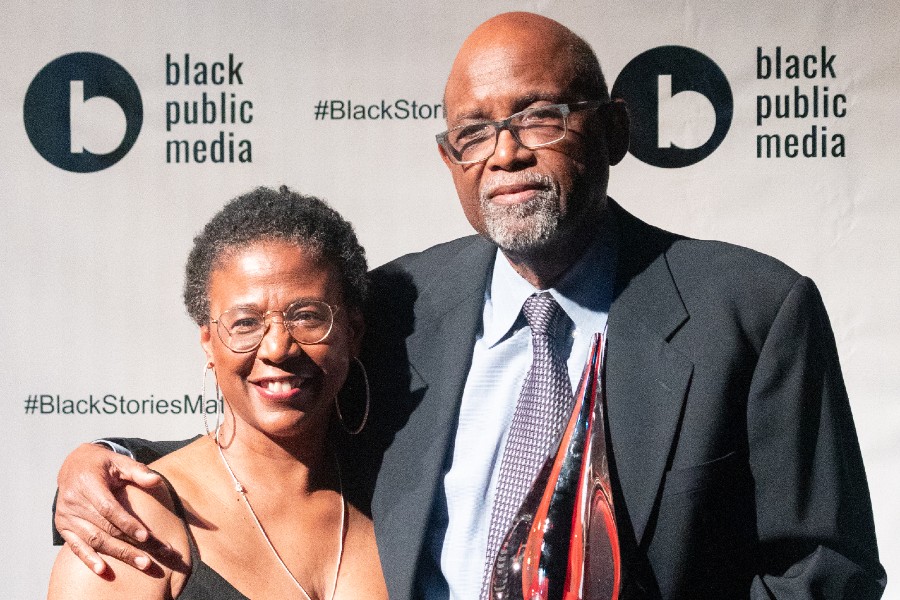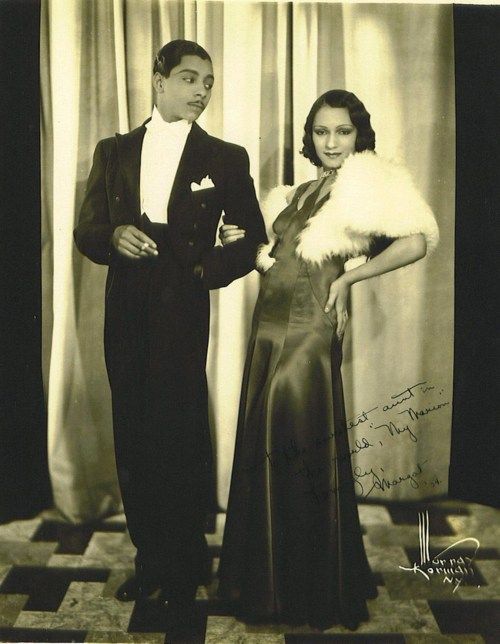 From 1933 until 1947 Margot Webb and Harold Norton performed on the Afro-American vaudeville circuits of night clubs and theatres in Harlem, around the Northeast and the Midwest.
From 1933 until 1947 Margot Webb and Harold Norton performed on the Afro-American vaudeville circuits of night clubs and theatres in Harlem, around the Northeast and the Midwest.
Margot Webb She was born Marjorie Smith, and grew up in Harlem, was seduced by ballet and other “Europeanist” genres, dropped out of Hunter College, was a headline dancer in the Cotton Club 1933-1939. She danced Waltz, Tango, Bolero with her partner Norton in the dance team of “Norton & Margot” They performed in London, Paris and Germany before WW II.
Known professionally as “Norton and Margot”, they were one of the few Afro-American ballroom teams in history. Their career was emblematic of the frustrations, paradoxez, and double standards which existed for Afro-American artists in the United States. As a ballroom team, they faced the same obstacles as a Dean Dixon or a Marian Anderson: they were raveling on a white road posted with “No Trespassing” signs for the Afro-American. They followed on the heels of the 1920s, which was the golden era of Afro-American vaudeville, of the Cotton-Club-type, posh nightclub, and of “Black Broadway.” They preceded by two decades the civil rights era of the 1960s, when more opportunities became available to Afro-Americans in mainstream (or white) show business. Norton and Webb belonged to the swing era of the 1930s and the 1940s. However, due to the nature of their performance style and the racial tenor of their times, they were either too early or too late for sucess. It is in this sense that they existed between two eras.
Had they been Lindy Hoppers, tap dancers or an exotic act, they might have gained opportunities in white show business. For example, Afro-American dancers like Bill “Bojangles” Robinson who achieved mainstream popularity exhibited qualities conventionally associated with “Black Dance”: speed, eccentricity, “natural rhythm,” fast footwork, or exoticism. They succeeded by adhering to repertory which acknowledged the accepted stereotypes of a society based on racial discrimination and segregation. In contrast — and like their Afro-American counterparts in opera, ballet, and classical music — Norton and Webb adopted a white repertory. This was a radical move for an era in which America questioned the potential of Afro-American achievement in western disciples, and even doubted the existence of romantic love in the Afro-American male-female relationship.
Paradoxically, because of the rarity of ballroom dancing by an Afro-American team, Norton and Webb could be booked regularly on Afro-American entertainment outlets when a ballroom act was solicited. They were preceded by Thelma and Paul Meeres, who performed as “Meeres and Meeres” in the 1920s. The Meereses’ act was more a novelty and ethnic repertory than ballroom dance and included Native American and Caribbean dances performed in “authentic” costume. Fredi Washington and Al Moore were a team for a short time, but went on to other show business careers. Washington, who had created the role of Peola (the light-skinned Afro-American who decides to pass for white) on the original film version of Fannie Hurst’s novel, Imitation of Life, returned to the stage to pursue a career as an actress. With the exception of teams such as “Anise and Aland” and “Ross and McCain,” both contemporaries of Norton and Webb, other Afro-American teams were tap, acrobatic, exotic or novelty acts.
Photo credit: !). From Amazon presented is a 1934 photo of Norton & Margot. It is signed “To the sweetest Aunt in the world, My Marion, Lovingly Margot, 1934”. 2-4) Source.
Become a Harlem Insider!
By submitting this form, you are consenting to receive marketing emails from: Harlem World Magazine, 2521 1/2 west 42nd street, Los Angeles, CA, 90008, https://www.harlemworldmagazine.com. You can revoke your consent to receive emails at any time by using the SafeUnsubscribe® link, found at the bottom of every email. Emails are serviced by Constant Contact


